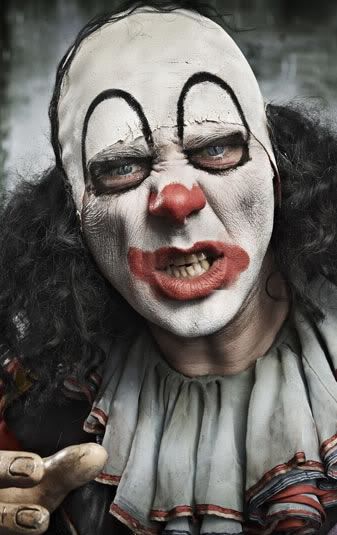Saturday, 29 September 2012
"Asteroid" by Pete Moore
Sunday, 24 June 2012
The Hairy Cornflake
I've been meaning to post this for some time but this week's British visit by Aung San Suu Kyi has finally prompted me.
I'm going to say nice things about Dave Lee Travis.
Like any of the veteran presenters who still had programmes on Radio One when the BBC had its Night Of The Long Knives in the mid-1990s, he was painted as an anachronism, the very sort of creature that Harry Enfield and Paul Whitehouse set out to mock with their Smashey'n'Nicey sketches.
The reality is rather grubbier. Workplaces aren't supposed to be run on a basis of whose face fits, and the BBC is no exception. Take a look at this. If I worked in a place like that, I'd think it ugly too.
The own goal in the remodelling of the station, regardless as to its musical intentions, is that the replacements were no better. Travis may have had a few gimmicks but he had a deep-rooted love of music that showed through - much of it period stuff, admittedly - whenever he was given a bit of freedom on air. I have never once thought this about Chris Moyles.
The other side to this is that I have come to have a bit of respect for old school entertainers. Dave Lee Travis, when he first heard that his old programme on the BBC World Service was a boon to Aung San Suu Kyi while she was under arrest, was quite public in his surprise. He doesn't "do" politics, and never has. My teenage self would have taken this as evidence that he was part of the establishment, a puppet of The Man. Thirty years of Bono later, I've come to admire any public figure whose beliefs are their own and who has the self control not to beat others over the head with them.
Going on at this rate, it'll be Terry Wogan next.
Saturday, 26 May 2012
Mr Eurovision Song Contest Man
Saturday, 28 April 2012
We don't need no education
I'm in education myself - I'm an engineering lecturer at the University of Plopsaland. Among the students I dealt with this week are two that I will call X and Y, however mathematically clichéd that seems.
Student X is from the Home Counties of England - the largely rather affluent region that surrounds, but does not include, London. X has been an award-winning student since enrolling here. X has a family background that includes other successful career engineers.
Student Y is from some shit-hole just off the motorway.
Student X gave a presentation this week based on a lab experiment done earlier in the trimester. My colleague and I struggled to find anything wrong with the presentation at all. It was one of those rare pieces of work that are worth 100%, or something very close to that.
On the same day, the last day of any teaching before the second trimester exams start, student Y handed in a withdrawal notice. After struggles with attendance and coursework deadlines, Y has decided to throw in the towel, despite being able to salvage whatever he/she can from the second trimester exams and the August resits.
Student X is almost certain to graduate with a decent class of degree with very real career prospects. But it's student Y who really needs it.
Thursday, 14 July 2011
Lazy YouTube follow-up to last rant
Item number one - spank me vicar, that'll be those popstars being shocking again:
It's a pity that there's only this version around. My only problem with Flanders and Swann is Flanders and Swann themselves - I've always found their delivery camp and knowing where playing straight would have worked better. Many of their songs were popular on BBC children's television when I was growing up and, on the whole, I'd rather hear Johnny Ball sing "A Transport of Delight" than its writers. It's like the old cliché about Bob Dylan songs sounding better when done by others.
Item number two - where swears might just be the point rather than the easy path to steet credibility
JCC (guesting on Neil Innes' programme) tries manfully against the broadcasting rules of the day, but it doesn't really work, does it?
Tuesday, 21 June 2011
This used to be a fun house, but now it's full of sweary clowns
 My daughter had to come up with a dance routine at school today. She chose "Funhouse" by P!nk, which I believe is pronounced "pink". It would be easy money to play the bewildered dad act, so I won't lie - I knew of the song. But we don't own a copy, and it was needed on a CD this morning.
My daughter had to come up with a dance routine at school today. She chose "Funhouse" by P!nk, which I believe is pronounced "pink". It would be easy money to play the bewildered dad act, so I won't lie - I knew of the song. But we don't own a copy, and it was needed on a CD this morning.Of course, I was told this at twenty past eight.
Not wanting to set a bad example to my children, I then went looking to buy the song as a download. I've had problems with burning CDs from files with digital rights management protection, so iTunes was ruled out. All other versions available had the warning that they were "explicit".
Let's make this clear: I'm not Mary Whitehouse. I can eff and jeff as much as anyone. I just don't expect to be PAID for it. We're not talking about "Evidently Chicken Town" by John Cooper Clarke here; "Funhouse" has a single swear two minutes in that adds nothing. I'd have laughed if the radio version had bowdlerised the line to "burn the bugger down", but my sense of humour doesn't travel.
The singles chart is absolutely full of this stuff - the mild thrill of BBC radio having to mask any instance of Paul Weller singing "shit" in a Jam song is in the distant past. I've had to tell my kids that this isn't the sole preserve of professional misanthropes like Eminem - chart music is either obsessed with sex or peppered with oil rig vocabulary. Or both. A recent Cee Lo Green single was called "Fuck You". It may as well have been titled "Piss Poo Bum Snot".
I just downloaded the radio version of Funhouse off YouTube in the end. If you feel like reporting me, phone the police. You know their number.
Friday, 21 January 2011
The Censor's Shite
The following rant reveals a few things about a film called "The King's Speech". You may have heard of it. Indeed, what I have to say is about published spoilers in unexpected places. As I am aware of the irony in all this, I'll warn you that if you haven't already seen the film and want to, you should keep yourself clean and read no further. To protect you, here's a nice picture of Dani Harmer before the rant starts:
